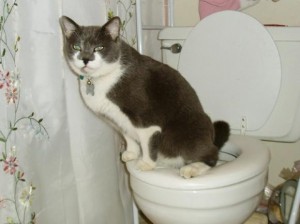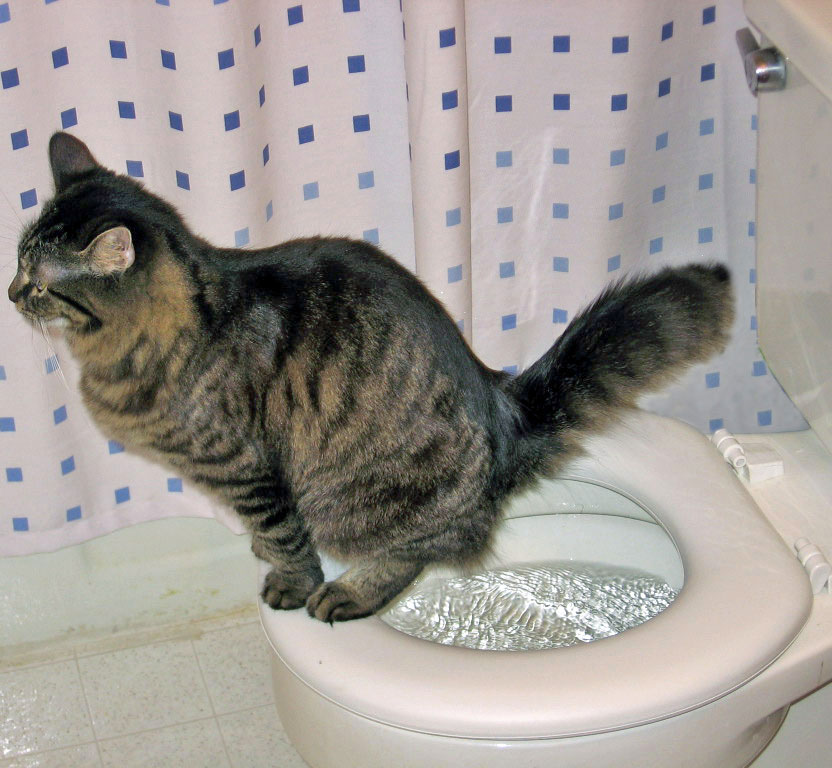Potential Risks of Flushing Cat Poop Down Your Toilet - Tips for Safer Handling
Potential Risks of Flushing Cat Poop Down Your Toilet - Tips for Safer Handling
Blog Article
Just about every person has got their private piece of advice about Can You Flush Cat Poop Down The Toilet?.

Introduction
As feline proprietors, it's essential to be mindful of how we dispose of our feline good friends' waste. While it might seem practical to flush feline poop down the bathroom, this practice can have detrimental repercussions for both the setting and human wellness.
Environmental Impact
Flushing pet cat poop presents damaging virus and parasites into the water system, posturing a significant risk to water ecological communities. These impurities can adversely impact marine life and compromise water quality.
Health Risks
In addition to ecological problems, purging pet cat waste can also present health dangers to people. Pet cat feces might have Toxoplasma gondii, a bloodsucker that can trigger toxoplasmosis-- a potentially severe ailment, especially for pregnant females and people with weakened body immune systems.
Alternatives to Flushing
Luckily, there are safer and extra accountable means to throw away cat poop. Take into consideration the following choices:
1. Scoop and Dispose in Trash
The most typical approach of throwing away cat poop is to scoop it into an eco-friendly bag and toss it in the garbage. Make certain to utilize a committed trash inside story and get rid of the waste promptly.
2. Usage Biodegradable Litter
Go with naturally degradable pet cat trash made from products such as corn or wheat. These litters are eco-friendly and can be securely gotten rid of in the garbage.
3. Hide in the Yard
If you have a backyard, consider burying cat waste in a designated area far from vegetable yards and water sources. Make sure to dig deep enough to avoid contamination of groundwater.
4. Install a Pet Waste Disposal System
Buy a family pet garbage disposal system specifically created for cat waste. These systems make use of enzymes to break down the waste, decreasing odor and ecological impact.
Conclusion
Responsible animal ownership prolongs beyond supplying food and sanctuary-- it likewise entails proper waste administration. By avoiding flushing feline poop down the commode and choosing alternate disposal approaches, we can minimize our environmental impact and secure human health and wellness.
Why You Should Never Flush Cat Poop Down the Toilet
A rose by any other name might smell as sweet, but not all poop is created equal. Toilets, and our sewage systems, are designed for human excrement, not animal waste. It might seem like it couldn’t hurt to toss cat feces into the loo, but it’s not a good idea to flush cat poop in the toilet.
First and foremost, assuming your cat uses a litter box, any waste is going to have litter on it. And even the smallest amount of litter can wreak havoc on plumbing.
Over time, small amounts build up, filling up your septic system. Most litter sold today is clumping; it is made from a type of clay that hardens when it gets wet. Ever tried to scrape old clumps from the bottom of a litter box? You know just how cement-hard it can get!
Now imagine just a small clump of that stuck in your pipes. A simple de-clogger like Drano isn’t going to cut it. And that means it’s going to cost you big time to fix it.
Parasitic Contamination
Believe it or not, your healthy kitty may be harboring a nasty parasite. Only cats excrete Toxoplasma in their feces. Yet it rarely causes serious health issues in the cats that are infected. Most people will be fine too if infected. Only pregnant women and people with compromised immune systems are at risk. (If you’ve ever heard how women who are expecting are excused from litter cleaning duty, Toxoplasma is why.)
But other animals may have a problem if infected with the parasite. And human water treatment systems aren’t designed to handle it. As a result, the systems don’t remove the parasite before discharging wastewater into local waterways. Fish, shellfish, and other marine life — otters in particular — are susceptible to toxoplasma. If exposed, most will end up with brain damage and many will die.
Depending on the species of fish, they may end up on someone’s fish hook and, ultimately on someone’s dinner plate. If that someone has a chronic illness, they’re at risk.
Skip the Toilet Training
We know there are folks out there who like to toilet train their cats. And we give them props, it takes a lot of work. But thanks to the toxoplasma, it’s not a good idea.

Hopefully you enjoyed reading our excerpt on How to Dispose of Cat Poop and Litter Without Plastic Bags. Thank you so much for finding the time to read through our piece. Are you aware of somebody else who is excited about the subject? Why not promote it. Thank you so much for going through it.
Book Report this page